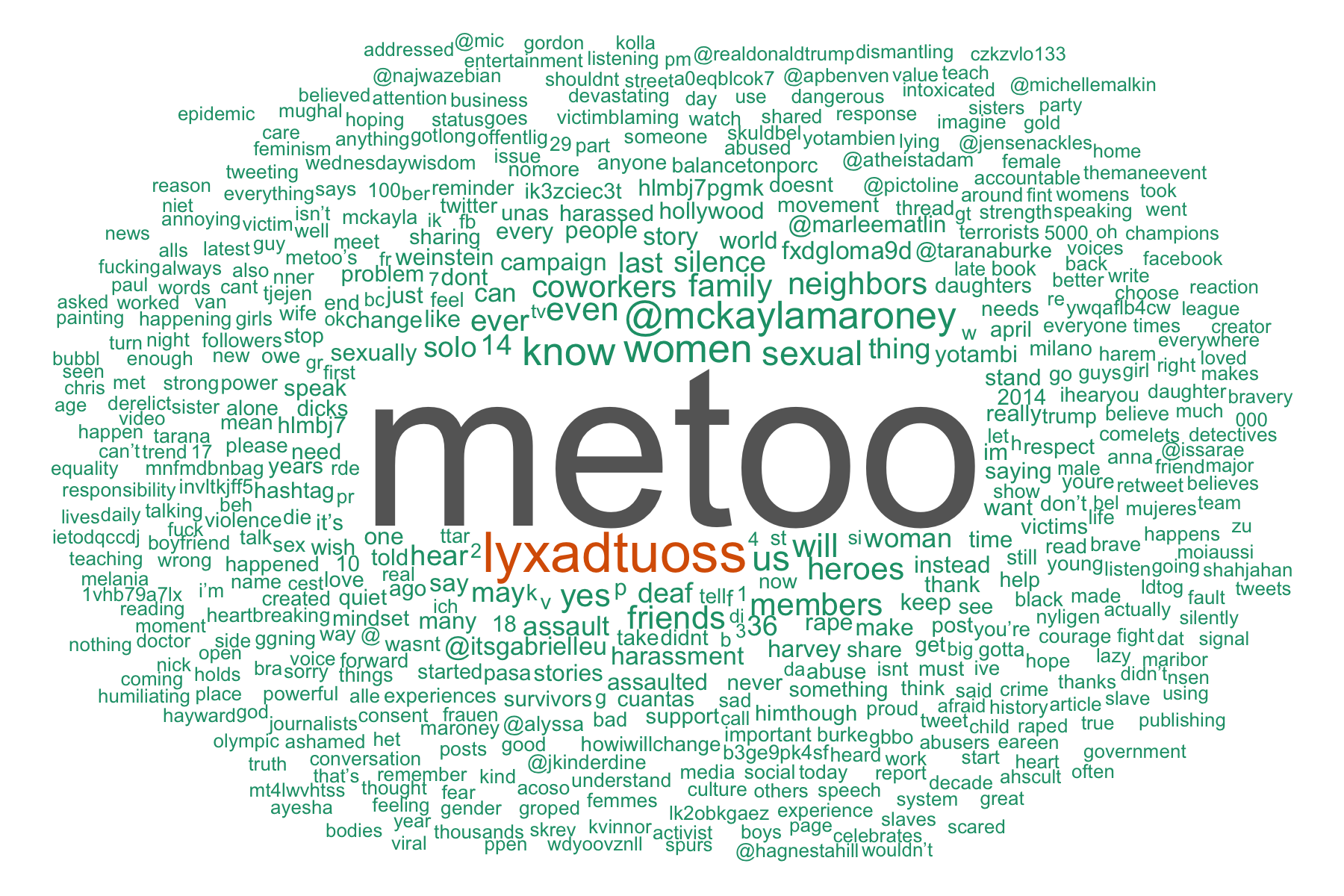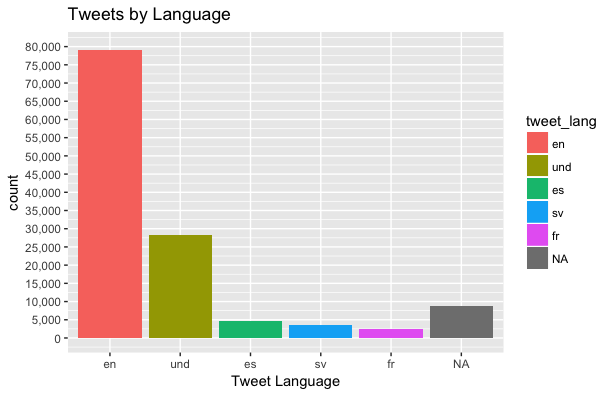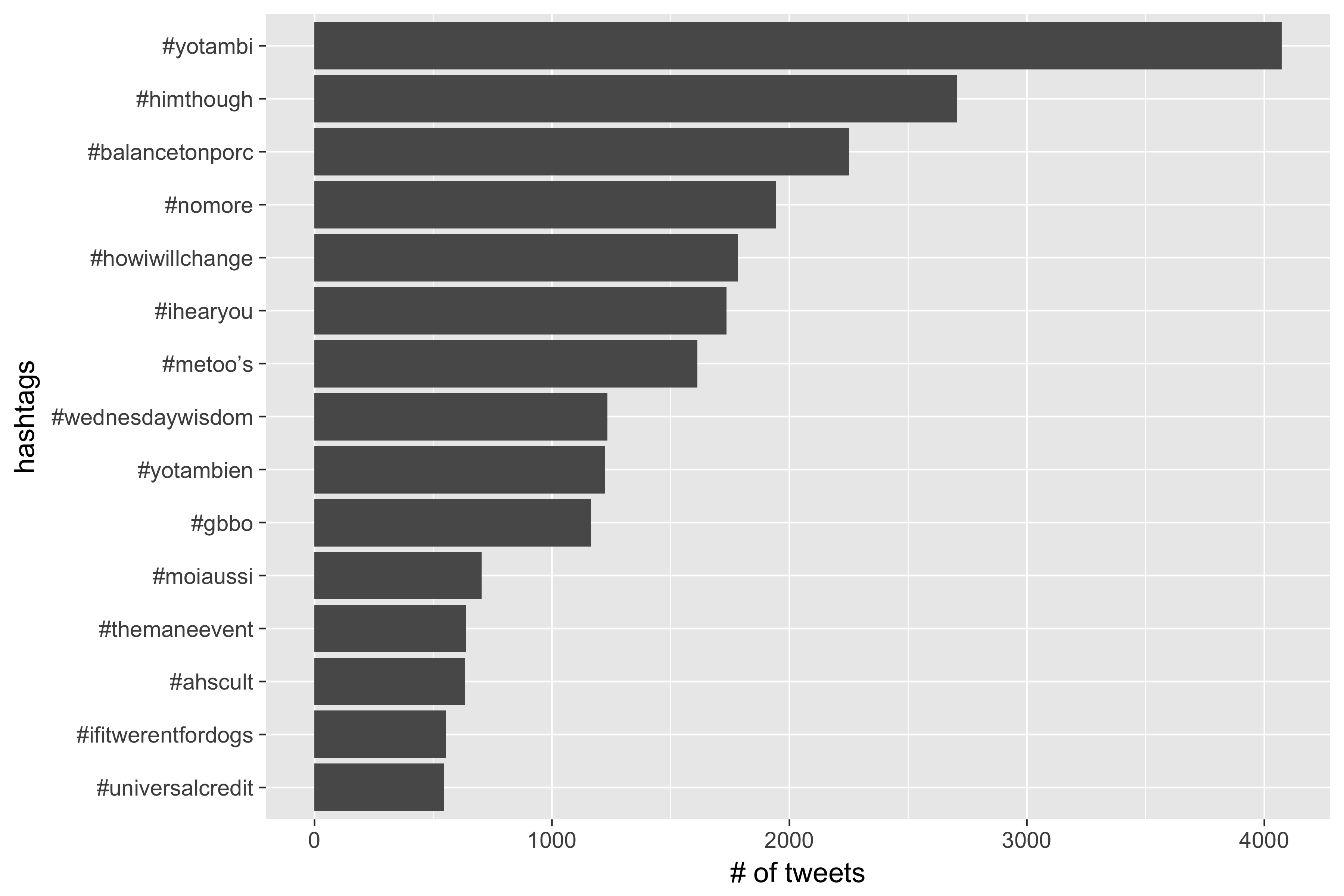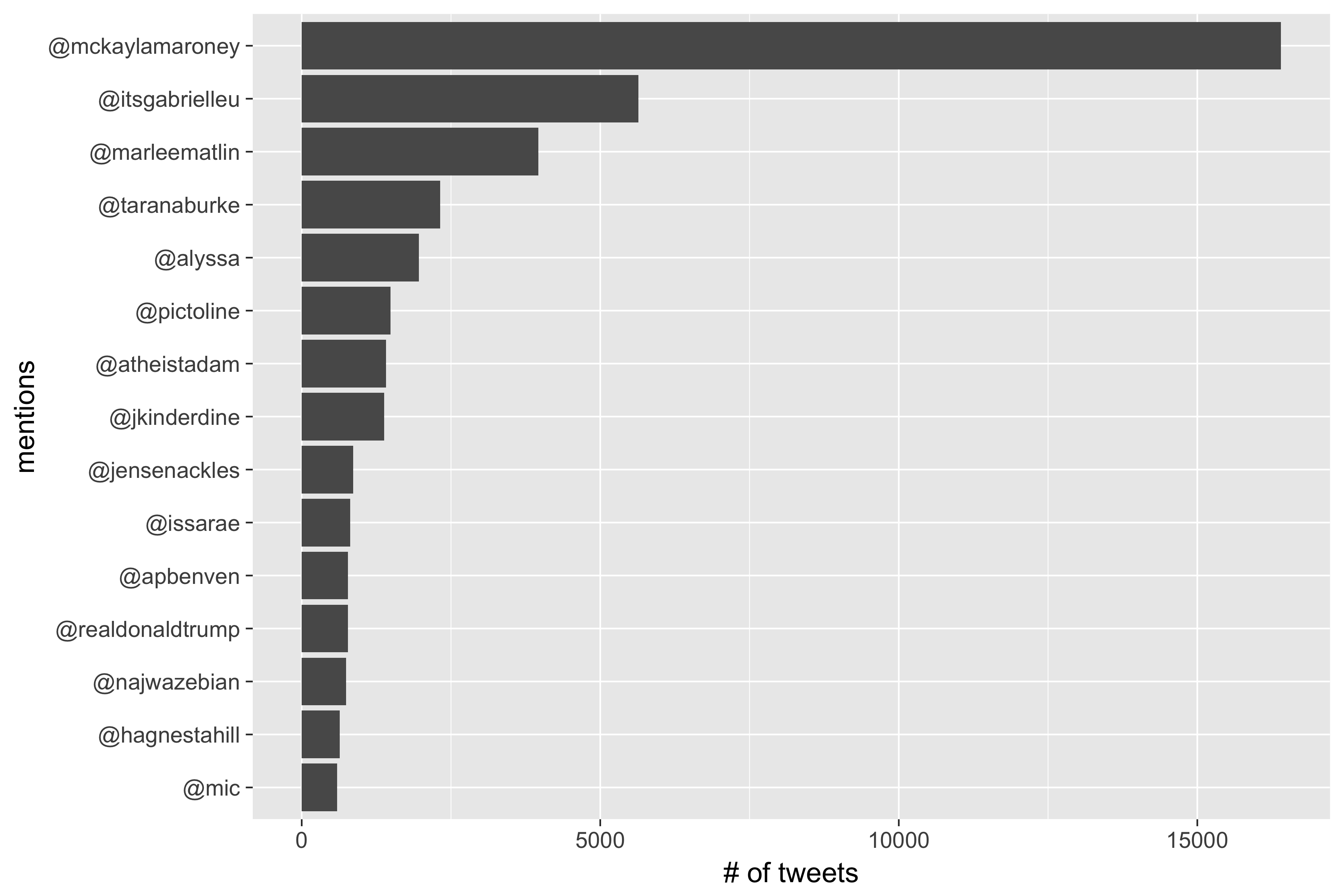Me Too. What is it? Where did this surge of posts on social media come from?
Excerpt from Huffington Post:
A black woman named Tarana Burke is the original creator of the #MeToo campaign that has recently taken over social media.
Burke, founder of youth organization Just Be Inc., created the “Me Too” campaign in 2007 long before hashtags even existed. The 44-year-old told Ebony Magazine that she created the campaign as a grass-roots movement to reach sexual assault survivors in underprivileged communities.
“It wasn’t built to be a viral campaign or a hashtag that is here today and forgotten tomorrow,” Burke told Ebony on Monday. “It was a catchphrase to be used from survivor to survivor to let folks know that they were not alone and that a movement for radical healing was happening and possible.”
The campaign recently turned into a hashtag after actress Alyssa Milano wrote a call-out on Twitter asking followers to share their stories of sexual harassment and assault using the phrase “Me too.” While Milano did not state that she created the campaign, many media outlets credited the actress for originating the hashtag.
Burke told Ebony that it’s “powerful” to see the hashtag go viral. “What’s happening now is powerful,” she said. “And I salute it and the women who have disclosed but the power of using ‘me too’ has always been in the fact that it can be a conversation starter or the whole conversation ― but it was us talking to us.”
On Monday, Milano tweeted that she was “made aware of an earlier #MeToo movement” and linked to Burke’s story.
More links talking about it:
- https://twitter.com/search?q=metoo
- https://www.wired.com/story/the-problem-with-me-too-and-viral-outrage/
- https://www.nbcnews.com/storyline/harvey-weinstein-scandal/some-sexual-assault-survivors-harvey-weinstein-news-can-be-triggering-n811496
- https://www.theatlantic.com/international/archive/2017/10/the-weinstein-scandal-seen-from-france/543315/
- https://www.nbcnews.com/news/us-news/olympic-gymnast-mckayla-maroney-says-dr-larry-nassar-molested-her-n811766
- https://www.washingtonpost.com/news/posteverything/wp/2017/10/18/saying-me-too-isnt-enough-women-have-to-stop-excusing-men-too/
- https://www.huffingtonpost.com/entry/in-response-to-metoo-men-are-tweeting-howiwillchange_us_59e79bd3e4b00905bdae455d
I like looking at tweets. It fascinates me seeing what the masses are saying but also just browsing individual tweets at some of the random things people say. See my post on Twitter Scraping for technical background of how I did my data pull. In short: Use tweepy to stream tweets into a postgres database to analyze and visualize in R.
For looking at #metoo tweets I used the same code and database setup (except this time on my raspberry pi instead of my old laptop). I once again am reminded about how much I like postgres. Getting a database created and reachable across my local network takes a couple minutes.
Wired writes on viral outrage and how we are really good at showing support for a movement or outrage at injustice on social media. It’s so easy to hit that ‘like’ or ‘retweet’ button. Turning digital outrage or support into action is the hard part.
It’s possible for #MeToo to rise from a meme into a social movement. There’s a chance the stories accruing in my feed can begin to transform our culture into one where every woman can say without fear—and with certainty that she will both be believed and received in good faith—“me too.” But for that to happen, we must put down our devices and talk to one another.
That said, trending hashtags and online movements do generate a lot of awareness. If it weren’t for friends posting on facebook I wouldn’t have known to check twitter and see what the rest of the world thinks.
I don’t really have an answer for this though. Is it just always going to be hard to share these sensitive topics? Can we even make it ‘easier’ to do? Should we shift from focusing on sharing the tragedies to preventing them from happening? I’d love to hear your ideas if you have any! https://twitter.com/clesiemo3
Now on to the data. Note: There is some explicit language in the source material. While I’m not one to use it, I’m not interested in censoring it either.

My data pull was a bit scattered because I was running it on my macbook instead of the pi itself and forgot to adjust the settings so it wouldn’t fall asleep. So due to restarting multiple times any time series data doesn’t look good and no reasonable conclusions could be taken from it. However grouping the data overall showed me some insights.
Top 10 words
| words | tweets | rank |
|---|---|---|
| metoo | 167206 | 1 |
| lyxadtuoss | 30504 | 2 |
| women | 17562 | 3 |
| know | 17468 | 4 |
| @mckaylamaroney | 16403 | 5 |
| us | 14198 | 6 |
| sexual | 13222 | 7 |
| even | 12190 | 8 |
| will | 11959 | 9 |
| yes | 11505 | 10 |
Through this word cloud I learned that McKayla Maroney shared a #metoo post that received a lot of attention.
“lyxadtuoss” is an interesting one. Turns out it is the shortened url for the image McKayla shared.
https://t.co/lYXaDTuOsS => https://twitter.com/McKaylaMaroney/status/920548528870400001/photo/1
Maybe I should’ve written my code better to exclude URLs in all but it’s interesting all the same that an image URL was found more frequently than many other words around the topic.
Language
As could be expected most posts were in english followed by ‘undefined’ but we also see a spanish and french presence.

“#metoo” takes on the form of #yotambi, #yotambien, and #moiaussi There was also “#balancetonporc “or “squeal on your pig.” as per fortune: link
Hashtags

You can see these other languages show up in the most frequent hashtags used.
| tweets | trump | weinstein |
|---|---|---|
| 127187 | 1883 | 2528 |
While there are many tweets referencing Harvey Weinstein & Donald Trump they don’t find themselves as the primary focus. The hashtag is much bigger than the comments on them.
Mentions

McKayla as expected was mentioned the most with her and a few others overtaking @alyssa Milano who got the ball rolling.
All in all, a tough topic, but hopefully this post and data has shown some insight into what is being said.